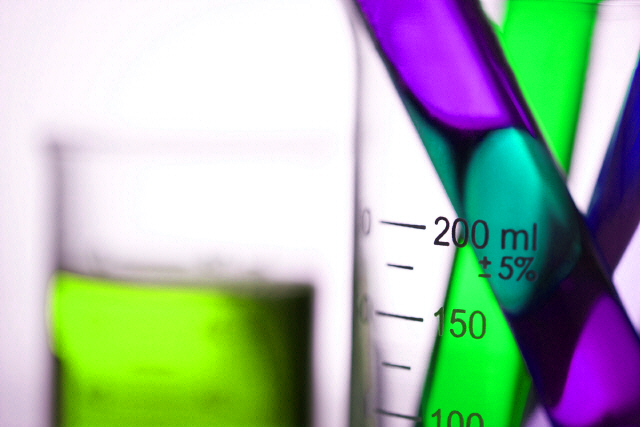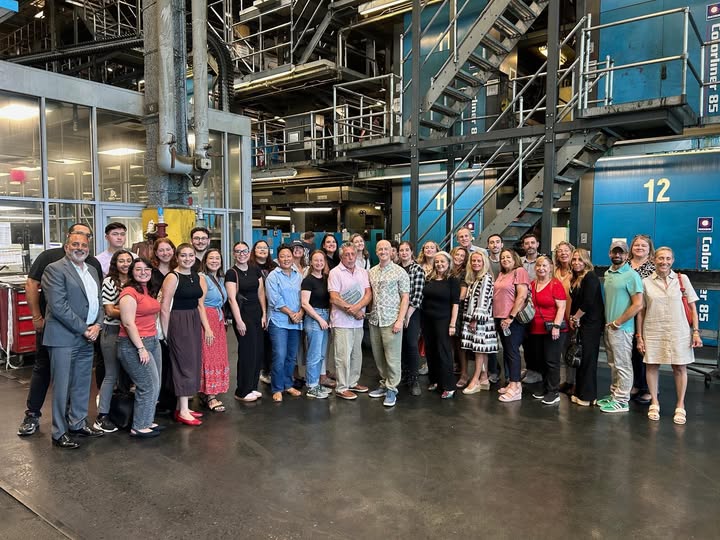A Chemical Reaction

My summer was full of inspiration and direction. This summer I had the opportunity to intern at George S. Coyne Chemical; a family owned chemical company since 1868. Coming into the company my knowledge about chemicals/chemistry was limited. However, I learned ten times of what I thought I would learn and continue to be educated. I got the privilege to work directly under the vice president, who has been an inspiration and a mentor. I keep learning so much at Coyne Chemical not only about the business world, sales, marketing, creating programs, chemicals, but also about myself. I learned where I want to go, how to build confidence in myself, my strengths and weaknesses, managing/communicating with people, patience, handling myself in a business environment and about the chemicals in my world. However, I am taking this opportunity to write about a topic I feel we should all be more educated on; Chemicals.
This experience taught me about chemicals I never took the initiative to acknowledge in my daily life. What I learned about chemicals, which has been mostly negative, was from media outlets. I heard that chemicals were bad for the environment. But, the reality is that we can’t believe everything we hear. There are two sides to everything, including chemicals. There are good and bad chemicals. Chemicals have received a bad reputation over the years and are linked only with negative associations. Yet, some chemicals like H20 (Water), O2 (oxygen), and CO2 (carbon dioxide) are essential for us to exist. While others are used to better our nourishment if taken in balanced consumption. For example, the citric acid (formula C6H8O7) is a natural preservative/conservative ingredient. It is found in lemons, oranges, limes, and other citrus fruits. It is used in food products, drinks and the pharmaceutical industry. This ingredient can be used as an additive to give a sharp taste to foods or drinks. There are many more acids like acetic acid, fumaric acid, lactic acid, malic acid, tartaric acid and phosphoric acid. Acids have been around for centuries as important contributor to flavor. In addition, the acid environment they produce prevents the growth of many microorganisms.
There are also chemical ingredients we use in formulations for luxury purposes. Yeah, we need to improve on some, but there are people out there in the Research and Development (R&D) worlds that are looking into it. The cave didn’t become a house overnight. Not everyone likes those chemicals, but you sure would miss them if they were gone. For example, silicones are found in many personal care products. They received a bad reputation due to irritating skin causing acne and breakouts. However, these silicones are used in many skincare products identified as dimethicone or methicone under the ingredient label. Dimethicones are commonly used in primers and liquid foundations, because they fill up imperfections in the skin and create a smooth canvas for the foundation to go on. In addition, many waterproof makeups contain silicones, because they repel water and sweat. While in hair products, silicones are mostly found in hair conditioners and serums. They are responsible for the shiny, smooth, and soft feeling of our hair.
This internship educated me on the chemical consumption in my personal life. Chemicals like sulfates in shampoos and other beauty and personal products. Educating ourselves more about chemicals will help us make better decisions with our everyday life. For example, sulfate-free labels on shampoos mean that it won’t provide lush lather we get from sulfates. On the other hand, alternatives to sulfates, like alkyl polyglucosides, will moisturize hair and retain color of color treated hair longer. Knowing how chemicals work will help us choose the right products for our hair type, skin and body.
In conclusion, Coyne Chemical was a great opportunity for me. This experience was surreal and exciting. I learned about the business world with number crunching, competitiveness, sales, marketing, and etc. In addition, I learned about the chemical world which I am in contact daily. After two months, I am viewing, appreciating, and constantly educating myself about chemicals. If you could take away one thing from my blog post, I would hope it would be to educate yourself about chemicals (good and bad ones). The more we know about our environment, the brighter our future will be.
P.S. If you want to learn more about George S. Coyne Chemical or chemicals, visit https://www.coynechemical.com/


